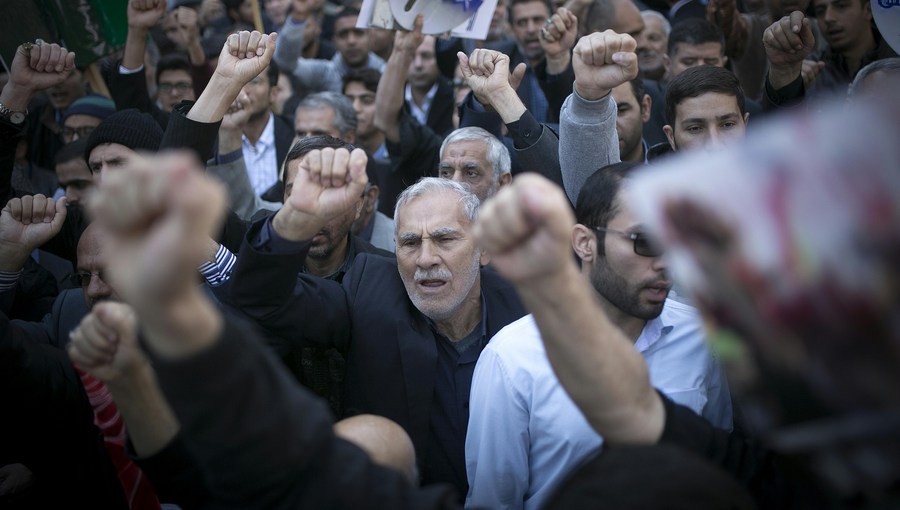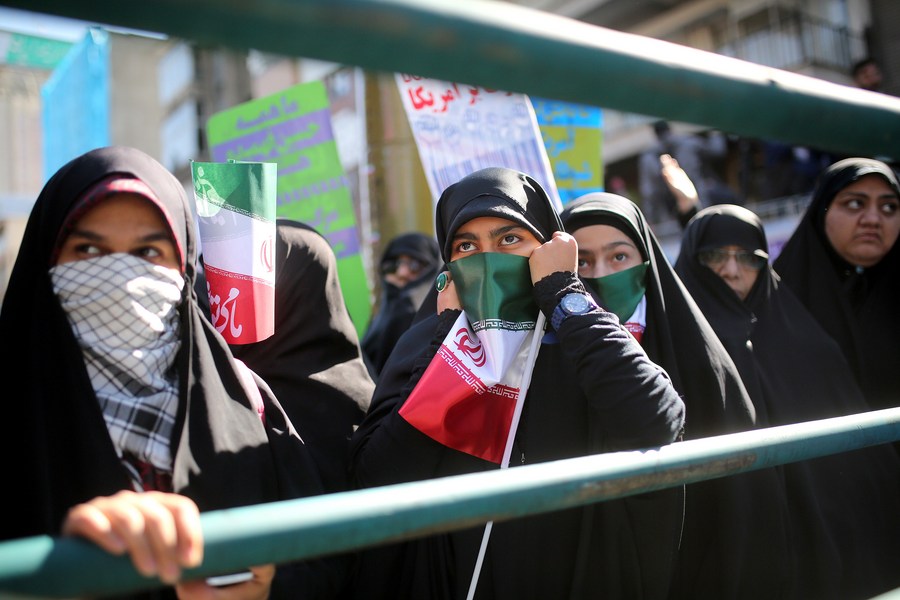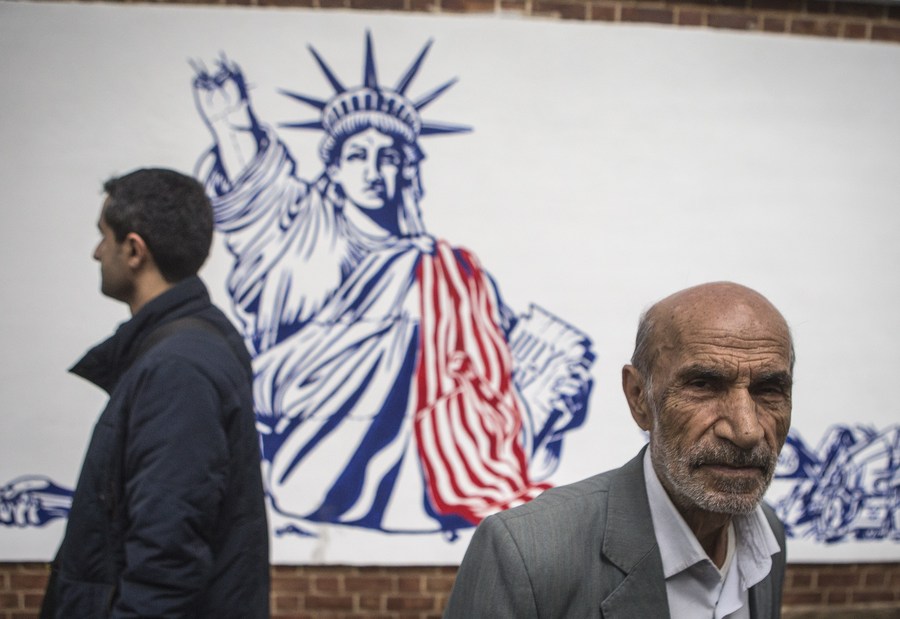CIA's 1953 coup against Mosaddeq remains source of Iran's distrust of U.S.

Photo taken on Nov. 3, 2016 shows people shouting slogans during a rally marking the 37th anniversary of taking over the U.S. embassy by a group of Iranian students in Tehran, capital of Iran, on Nov. 3, 2016. (Xinhua/Ahmad Halabisaz)
"The United States is afraid of an independent and powerful Iran, trusting the United States in international relations is meaningless, the way to deal with this country should be with strength, dignity, and sufficient guarantees," said an Iranian spokesman.
TEHRAN, Aug. 21 (Xinhua) -- Almost seven decades have passed since a U.S.-orchestrated coup toppled Iran's then Prime Minister Mohammad Mosaddeq, the notorious move still fuels Iranians' deep distrust of America today.
On the occasion of the anniversary of the U.S.-led coup in Iran, Ali Bahadori Jahromi, the spokesman for the Iranian government, said Friday that putting trust in the United States in international ties is "meaningless," citing it as one of the three lessons for Iran from the 1953 coup d'etat.
In August 1953, the American Central Intelligence Agency (CIA), in cahoots with the British spy agency, toppled the popular government of Mosaddegh in Iran.
It is widely believed that Washington and London were outraged by Mosaddegh's campaign to nationalize Iran's oil industry, which was under the control of foreign companies.
This nationalization deprived Western countries of huge profits, and could set a trend in other regional countries, analysts said.

Photo taken on Nov. 3, 2016 shows Iranian students taking part in a rally marking the 37th anniversary of taking over the U.S. embassy by a group of Iranian students in Tehran, capital of Iran, on Nov. 3, 2016. (Xinhua/Ahmad Halabisaz)
Bahadori Jahromi tweeted that the lessons of the coup remain forever in the minds of the Iranian people and constitute the criteria for Iranian politicians' decisions.
"The United States is afraid of an independent and powerful Iran, trusting the United States in international relations is meaningless, the way to deal with this country should be with strength, dignity, and sufficient guarantees," he said, elaborating on the three lessons.
Likewise, Iranian Foreign Ministry spokesman Nasser Kanaani on Friday also slammed Washington's "dark history" against independent countries.
"The U.S. government holds a record in interventions, invasions and coups against independent countries and governments," he said, adding that "the 1953 coup against Iran's democratically elected government was a flagrant example of this dark history."
"Will the United States change its flawed and failed policy on Iran and respect the legitimate rights of the Iranian people?" Kanaani asked.

People attend a rally marking the 40th anniversary of the seizure of the former U.S. embassy outside the former U.S. embassy in downtown Tehran, Iran, Nov. 4, 2019. Tens of thousands of Iranians held demonstrations nationwide on Monday to mark the 40th anniversary of the seizure of the former U.S. embassy in Tehran. (Photo by Ahmad Halabisaz/Xinhua)
Iran's English daily Tehran Times explained why Kanaani advocated such a question in an article titled "1953 coup: America is still the same."
Sixty-nine years after the coup that changed the course of Iran's modern history, the U.S. government still "pursues its ill-advised policies against Iran," it said.
After Iran's 1979 Islamic revolution, which eliminated U.S. presence in Iran entirely, the White House "continued its efforts to bring down the revolutionary government in Iran," Tehran Times noted, saying that the Americans dispatched military troops to Iran, supported anti-Iran coup plotters, and imposed sanctions on Iran which continue to this day.
As the 1953 coup brings back dark days to Iranians' memory one more time, the countries involved are making a last-ditch attempt to save the Iranian nuclear deal, formally known as the Joint Comprehensive Plan of Action (JCPOA), while the distrust between the two countries appears to be a main obstacle to JCPOA revival.
As Kanaani asked, will Washington change its pressure policy against Iran and resume compliance with the now-defunct nuclear pact which it unilaterally withdrew from?
Iran and the world are awaiting an answer.
Photos
Related Stories
Copyright © 2022 People's Daily Online. All Rights Reserved.









